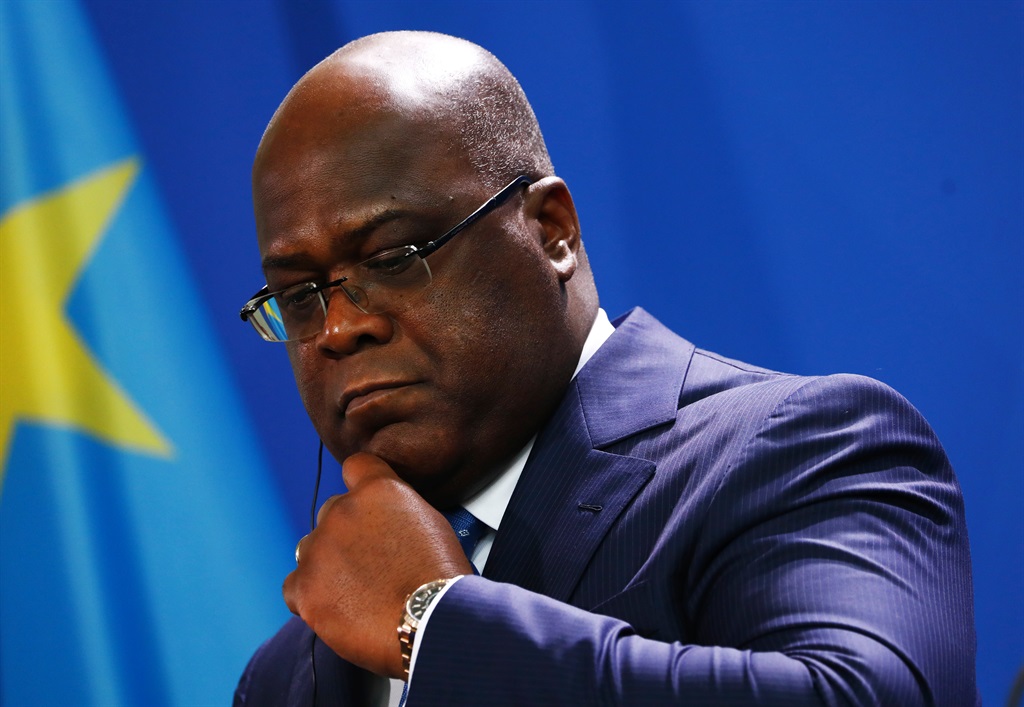If the body language and utterances of the breakaway faction of Nigeria’s ruling party, the Reformed All Progressives Congress (R-APC) is anything to go by, hopes of reconciling contending forces may be far from accomplishment.
In no unmistaken terms, the aggrieved faction has said that the promise of juicy carrots to its members by the leadership of the APC was already too late to stop the R-APC from its planned defection.
The bombshell was dropped on Sunday in a statement by its national publicity secretary, Kassim Afegbua.
The statement came on the heels of high powered meetings between the Presidency and perceived arrow head of the rebel group, Senate President Bukola Saraki.
In one instance, the meeting with Saraki was led by President Muhammadu Buhari himself while Chairman of the ruling party, Adams Oshiomhole, was caught in nocturnal consultations with Buba Galadima who has been the known figure behind R-APC.
Read Also: What televangelist Okotie wants to do ahead of Nigeria’s 2019 polls
What impact these underground moves would hold for the fractured relationship remains a subject of permutations. Afegbua, spokesman of the R-APC appeared to have shot straight from the hips when he said,
“We members of the R-APC, find it very amusing that those who boasted that they won’t lose sleep over our altruistic action, have been hopping from door to door pleading with our members not to leave by dangling juicy carrots and promising them heaven and earth.
“Such level of double standard is the reason why the R-APC was birthed in the first place because the leadership is not one that keeps promises and it’s the reason why no one should take the APC seriously.”
On President’s meeting with Saraki and alleged promise of mouth-watering offers to the Senate President, R-APC wondered why Buhari finally is wooing “the same leader who was ridiculed, scandalised, demonised, criminalised and called all sorts of names by agents of the Presidency just to give the Senate President a bad name in order to hang him.”
It said, “As soon as the Supreme Court gave a resounding verdict on the trumped up and frivolous charges against the Senate President, Mr. President suddenly felt a need to praise the judiciary for standing on its own. Power as they truly say, must be a crazy aphrodisiac.”
It noted that never had any number three citizen of Nigeria been so dehumanised, criminalised and disgraced while those who just started reconciliation “kept conspiratorial silence, waiting for the sledge hammer to fall on the Senate President.”
R-APC further said, “They were short of calling him a promoter of armed robbery. They linked his name to the Offa Robbery and improvised all bile to rubbish the institution of the legislature.
“They stripped him naked in the marketplace and now desperately trying to bath him with ornaments in the inner fortress of Aso Rock.”
It said after the Supreme Court in a landmark judgment gave Saraki a clean bill of health, “All the political conspirators in the APC swooped into dubious reconciliation assignment, hopping from door to door at the thick of the night to strike deals of reconciliation. Those who said they won’t lose sleep over the R-APC have become sleepless in the last two weeks”.
On APC and its promises, R-APC said, “This government is never a promise keeper and some of the promises contained in the manifestos of the APC have been jettisoned.
Read Also:
“The President, who has held himself in the inner sanctuary of the Presidential Villa is all of a sudden, opening his doors to one meeting or the other all in the name of re-election.
“Just to make the point that it is too late in the day; the train has left the station. Leopards cannot change their spots no matter how much one tries to tame them.
“This democracy must survive on ethical grounds and not on lawlessness and exclusion. It must provide a level playing field for all participants. Those who prevented some persons from visiting their states in the name of politics have suddenly realised that they need the services and support of those persons.
“They are now pleading; ready to submit to all demands. Who does not know that won’t work because examples have shown that political agreements are often observed in the breach.”
Political watchers doubt how far these moves of rapprochement will go, especially so because the major gladiators appear to nurse deep injuries that may be difficult to erase.

 Sports2 days ago
Sports2 days ago
 Metro2 days ago
Metro2 days ago
 Metro1 day ago
Metro1 day ago
 Culture2 days ago
Culture2 days ago































